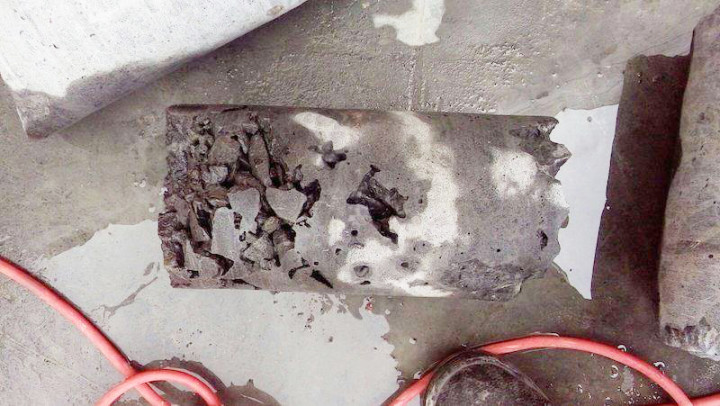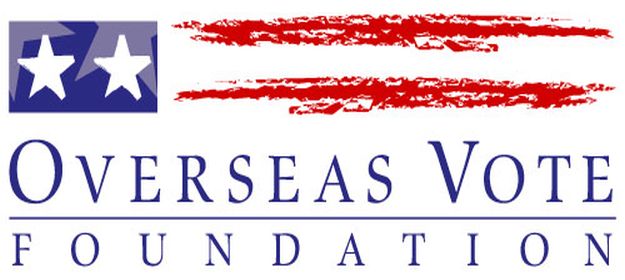
The ACP and the GUPC, whose lowball bid the former accepted, want you to believe that concrete like this is the product of not enough rebar, and that instead of tearing out the faulty work and redoing it we should accept the quick, cheap and temporary fix of putting it back together with pins and glue
A nation insulted
wimp, noun: a person who is not strong, brave, or confident; a male in a position of authority who sends in a female subordinate to answer for his mistakes…
The GUPC consortium’s belated, partial, preliminary and unpublished report on what is wrong with that leaking gate sill at the Cocoli Locks came into the Panama Canal Authority (ACP) on September 25. On September 30 we learned through La Prensa, probably the one news medium with the most business, family and political ties to the members of the ACP management and board of directors, which quoted Ilya Espino de Marotta, the only woman in a senior PanCanal management position, that the contractors are saying that the problem is a design flaw with both the Pacific and Atlantic side locks, a matter of not enough steel in the structures. The contractors’ plan, we were told, is to drill holes in the locks structures, pour a sealant into those holes and then insert rebar rods into them.
The following day, via Reuters and certain of the foreign maritime industry media, we were told that the problem definitely is as GUPC describes it, that the fix will be as described, and that the canal will open business as had been rescheduled for April of 2016 from its original August 2014 completion date. All this attributed to a disembodied nameless and faceless voice at the ACP.
However, the photos of the concrete core samples from the faulty locks sill have alreadly been seen by the public for weeks now. Those cores are the product of a grossly inadequate concrete mix, not any lack of rebar.
Bore some holes into that bad concrete, pour in some glue and add more iron and what you get is a temporary fix into which saltwater will intrude and rust out the metal within a few years. The bad concrete structures need to be torn out and rebuilt. Otherwise we get new locks that don’t meet the specification of having to last for 100 years.
And where have Minister of Canal Affair Roberto Roy and Canal Administrator been during all of this? Not showing their faces to the public and giving candid and honest answers to questions not of their choosing. All in all, it was a disgraceful display of the sort of management culture that has come to dominate the ACP, the very essence of wimpishness.
Our missing conflict of interest law comes front and center
For years now foreign governments, international agencies and many of Panama’s civic, professional and religious groups have been calling for a comprehensive conflict of interest law. What we have now are few afterthought provisions of laws for other purposes that restrict nepotism and other multiple loyalties in certain limited situations. What we have now is a political and legal culture of amazing arrogance.
Consider that two Ricardo Martinelli appointees to the Supreme Court are about to take charge of probably the most serious charges against the ex-president, those of the Financial Pacific affair. (Probably the most serious because that matter probably includes a murder case, the 2012 disappearance of Securities Markets Superintendency analyst Vernon Ramos.)
The man appointed to judge that case, José Ayú Prado, handled the Financial Pacific case when he was attorney general. A key witness accuses him of pressuring her to change her story. Yet he resists widespread calls for him to step down as judge, arguing that there is no legal or moral impediment to keep him from hearing the case. Moreover, before hearing the case he has made dismissive remarks to reporters about how it’s just a minor matter of one account, when many circumstances and some well placed observers say that the affair is much more than just that.
Then in the government regulated energy sector, we have the manager of a company that sells electricity to the ETESA state power grid company — which is headed by his brother — steadfastly claiming not that precautions have been taken to avoid undue influence but flat-out that there is no conflict of interest. Of course there is, but maybe none that Panamanian law recognizes.
And what about the canal expansion woes? One of the companies in the GUPC consortium that has the contract to design and build the new locks is owned by the family of he man who was canal administrator when that contract was awarded.
Panama’s lack of serious and enforced conflict of interest laws means that the Panamanian people get cheated and that the nation is an international laughing stock. It’s long past time that we stopped being a nation of pendejos who put up with this sort of stuff.
Bear in mind…










